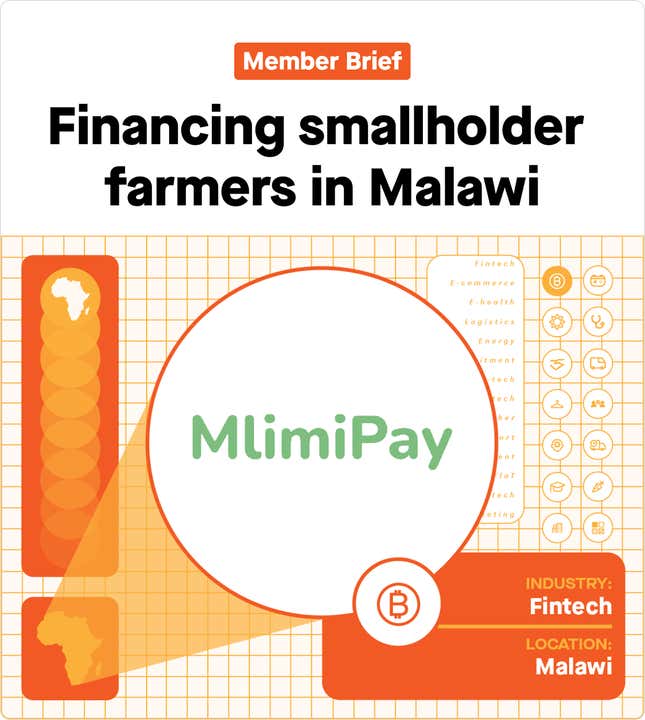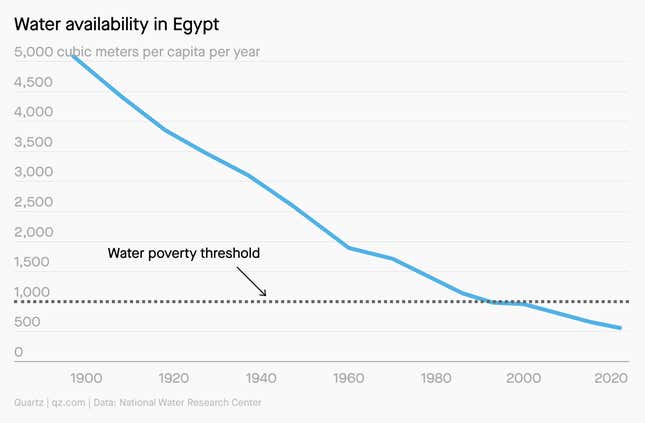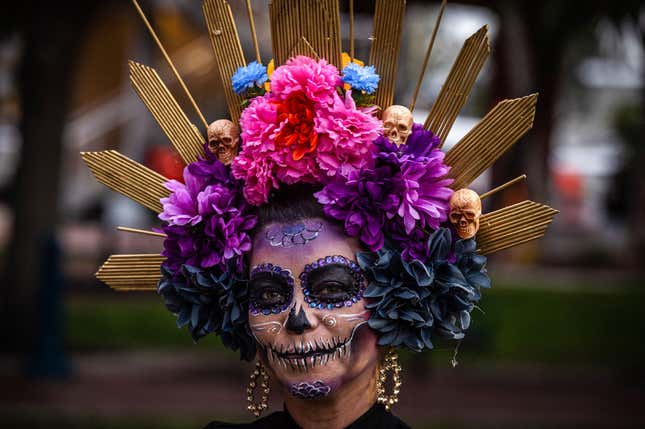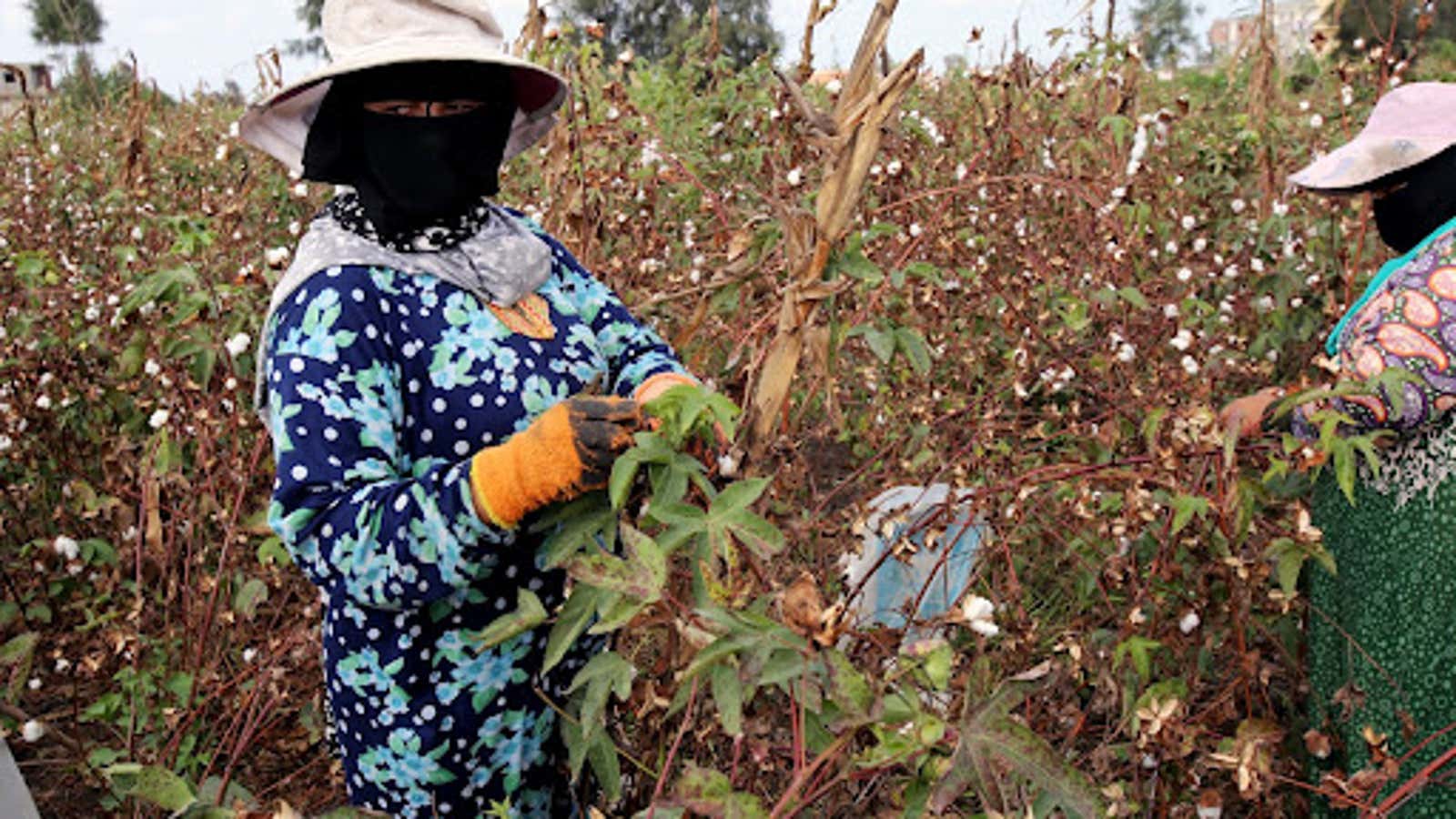Hi Quartz Africa readers,
To bridge the gaps deriving from historical inequities, such as gender inequality, the structural elements that brought about the divide in the first place must be acknowledged, rather than glanced over.
“Saying we don’t see gender is doing women a great disservice as it means we ignore all the social and cultural responsibilities placed on women in the continent,” said Nene Maiga, the CEO at Orange Botswana, who was part of a panel I moderated last week for Women Working for Change, an Africa CEO Forum affiliated platform for creating awareness about gender inequality in African business environments and finding solutions.
The panel also included Dr. Ololade Shyllon, the head of privacy policy for Africa, Middle East and Turkey at Meta and Dr. Yasmina Fechkeur, the CEO of Fechkeur Laboratory in Algeria.
Dr. Fechkeur reflected on her childhood growing up in the middle of the desert in Algeria, where her father led the family business in the energy sector, Redmed Group. She recalled a space that had almost no women: “I just acted like a boy. I was afraid to show any femininity and have only reclaimed that after leaving to study abroad.”
We all have certain images, for better or worse that shape us. Perhaps for Dr. Fechkeur it was one of leadership, especially in a very male-oriented field, being a domain where any “feminine” qualities are discounted.
Thankfully, she opened up as her whole self and, after she joined the board at Redmed group, female representation has moved from 0.5% to 7%. The next generation will have women to look to as proof that they too can lead in the field.
Dr. Ololade of Meta spoke about women supporting other women. In celebrating the sisterhood, she said “The women who have mentored me, encouraged me, advised me, supported me, listened to me—they get it, because they can personally relate to my own experiences. —Ciku Kimeria, Africa editor
What to watch for in the Quartz Africa member brief

By the digits
80%: Share of the Malawi’s workforce employed as farmers
59%: Proportion of smallholder farmers in Malawi who live below the national poverty line
25%-40%: Estimated numbers of smallholder farmers who sell their produce, rather than just live off of it, depending on the season
44%: Growth of the agritech sector in Africa between 2016 and 2019
85%: Estimated uptake in mobile and smartphone solution among smallholder farmers in Africa by 2030
Learn more about MlimiPay, a Malawian fintech serving smallholder farmers, in this past week’s edition of the Quartz Africa Member Brief. To get the Member Brief directly in your inbox (and save 40%), become a member today!
Stories this week
MTN hosts Africa’s first metaverse concert. Africa’s largest telco is confident that the show will create more awareness about immersive tech. But Faustine Ngila explains why this may not be the case.
The healthcare crisis in Tigray is enough to trigger a genocide. More than six million people in Tigray have no access to healthcare or food due to a war that has left 600,000 people dead. Annalisa Merelli details the evidence of a looming genocide.
Nigeria’s capital faces heightened terror risk. Alexander Onukwue explains why the US, the UK, and Australia pushed security alerts last week warning of possible terror attacks in Abuja.
Pressure is mounting for Kenya to investigate the death of a Pakistani journalist. Faustine Ngila writes about the growing calls for president William Ruto to expedite the prosecution of the Kenyan police officers who murdered renowned TV reporter Arshad Sharif.
Ghana’s cedi is sick due to internal causes. Alexander Onukwue describes the government decisions that led the country’s currency down its current slide.
Rishi Sunak’s roots can be traced to east Africa. In a more muted version of the region’s Obama moment, Faustine Ngila reports the new UK prime minister can claim links to Kenya, where his father was born, and Tanzania, his mother’s birth country.
Charting climate change’s impact in the Nile Delta
Few parts of Egypt are more at risk from climate change than the Nile Delta, one of the most fertile and densely populated rural areas in the world.
The Delta is an essential engine of Egypt’s economy, and highly exposed to climate risks like erratic weather and water scarcity. Although Egypt is rolling out some adaptive measures, they aren’t keeping pace with climate change. Tim McDonnell takes a deep dive into this ancient region and its path toward a more equitable and prosperous future.

As Egypt prepares to host the COP27 climate summit in just over a week, the country’s own vulnerability to climate change is on the line. Get updates from the event sent directly to your inbox with our Need to Know: COP27 pop up newsletter. Sign up today.
Quartz Gems

A blockbuster holiday
Part ritual, part fiesta, the Day of the Dead is the Mexican version of All Souls and All Saints days, observed on Nov. 1 and 2 by the Catholic church. Like the celebration of those holy days in Europe and elsewhere, it also involves trips to the graveyard and candles to honor the dearly departed. But over centuries, Mexico’s Día de Muertos has evolved into a distinct tradition with its own ghoulish iconography. For many Mexicans, it embodies the national spirit: an alluring blend of millenary indigenous lore, color, and whimsy.
But like any holiday, the Day of the Dead is more complicated than it appears. Its prehispanic origins are not as clear-cut as some make them out to be. And almost from the start, the holiday has been as much an occasion to sell goods and services like masses, sweets, and more recently, Doritos, as one to commemorate deceased relatives.
To be sure, Día de Muertos is grounded in tradition. But these days that tradition includes big-box store seasonal merch and a parade inspired by a James Bond movie.
Care to join us in the underworld? Let’s cross over as you read our most recent Quartz Weekly Obsession.
What if shortened work weeks weren’t just for holidays?

If you had an extra day of work off this week, maybe you’d spend it making sugar skulls or pan de muerto, or collecting the brightest marigolds for your altar.
The idea of a four-day work week may not be a hypothetical—more companies and governments are experimenting with the setup, and the results are surprising. Find out more in our new podcast episode that dropped on Oct. 27.
🎧 Listen to Work Reconsidered on: Apple Podcasts | Spotify | Google | Stitcher
Other things we liked
Namibia wants to renegotiate Germany’s genocide payment deal. The BBC explores why the Namibian government wants Germany to consider raising the $1 billion financial aid deal it announced last year as atonement for killing 80% of the Herero and half of all Nama from 1904 to 1908.
Ethiopia peace talks kicked off in South Africa. For Reuters, Anait Miridzhanian and Bhargav Acharya detail what the Tigray peace talks ending today mean to hundreds of thousands of families who have lost their loved ones to the war.
Uber and Bolt clashed with drivers in Kenya over commission payments. Drivers in Nairobi are protesting ride hailing apps’ delayed implementation of a law that would reduce commission payments from 25% to 18%, TechCabal’s Sultan Quadri reports.
“Ebola is under control in Uganda.” Bloomberg’s William Clowes explores the Africa Centers for Disease Control and Prevention’s efforts to fight an Ebola outbreak in Uganda.
ICYMI
Cash prizes for change makers. Are you aged between 18 and 30? The 2022 OD Impact Challenge is open for applications for those with a track record of making societal change. Cash prizes range from $200 to $500 plus a fully funded training program. (Nov. 25)
Get a share of the $50,000 Anzisha Prize. Get your ability to generate employment for your home country recognized by applying for the 2023 Anzisha Prize. It’s open to those aged between 15 and 22. You’ll undergo a three-year fellowship and receive a cash reward. (Nov. 27)
🎵 This brief was produced while listening to ‘Samilani’ by Theresa Ng’ambi, James Sakala, Maureen Lilanda, Pompi & Shaps (Zambia)
This week’s brief took you to 🇰🇪, 🇳🇬, 🇪🇬, 🇬🇭, 🇲🇼, 🇪🇹, 🇳🇦, 🇿🇲, 🇧🇼, 🇩🇿, 🇿🇦, and 🇺🇬
Our best wishes for a productive and ideas-filled week ahead. Please send any news, comments, suggestions, ideas, gender-equal workplaces, and metaverse concert tickets to africa@qz.com. You can follow us on Twitter at @qzafrica for updates throughout the day.
If you received this email from a friend or colleague, you can sign up here to receive the Quartz Africa Weekly Brief in your inbox every week. You can also follow Quartz Africa on Facebook.




